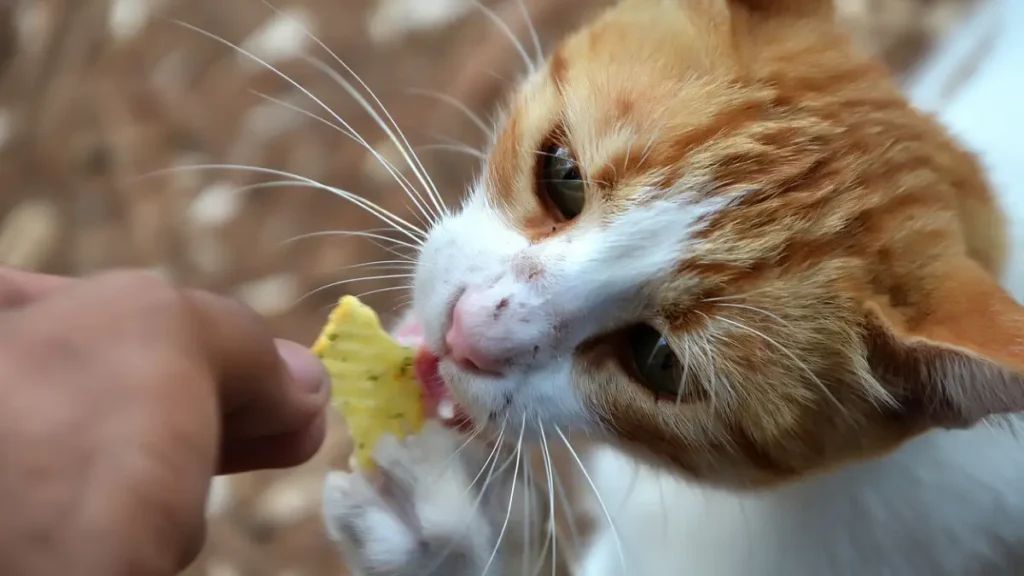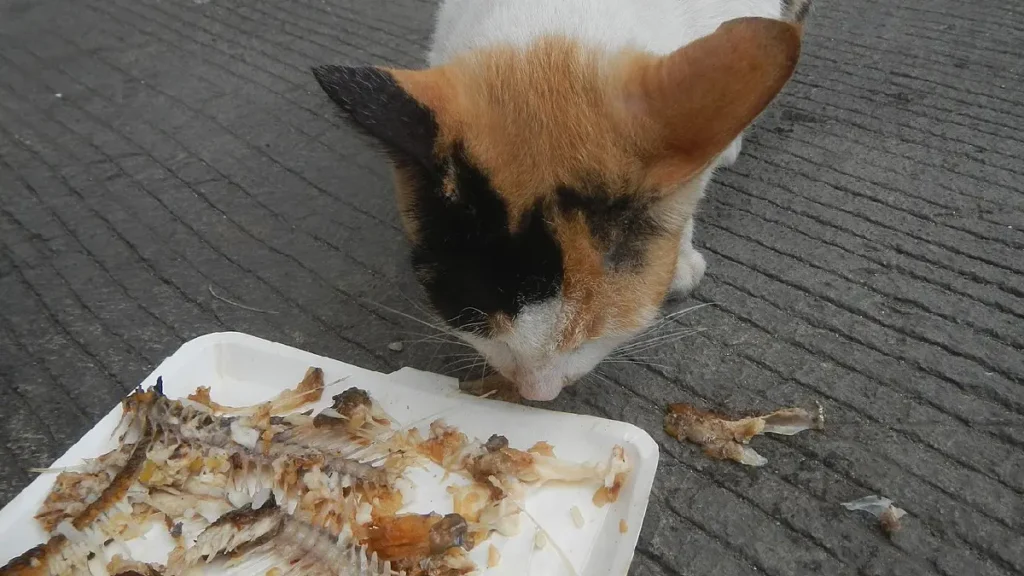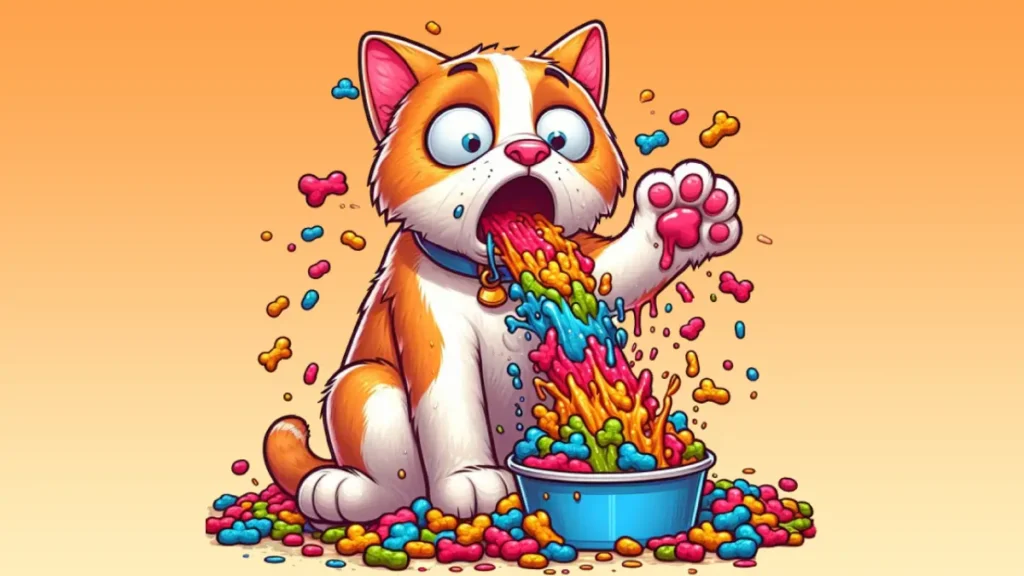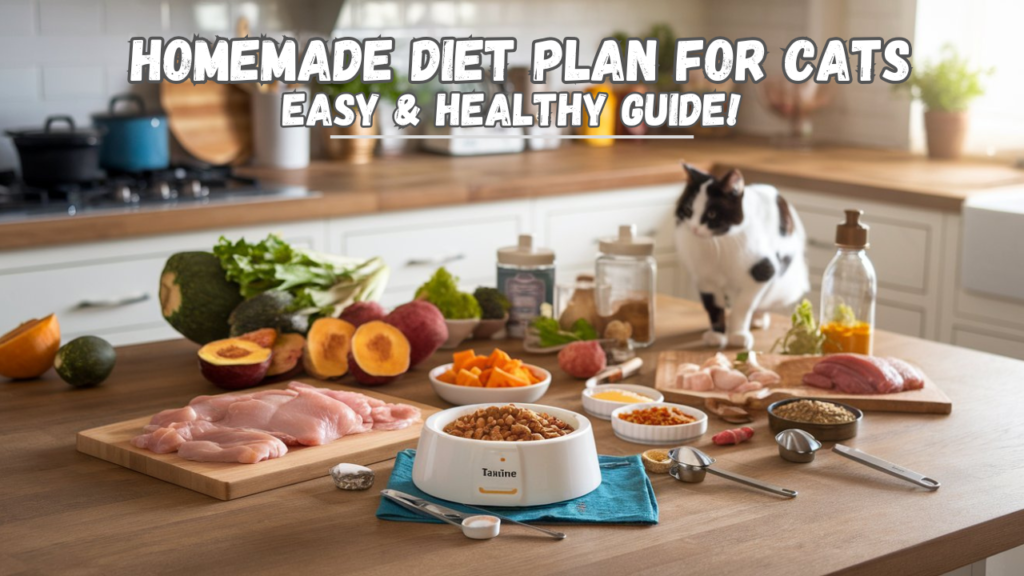When it comes to caring for our feline companions, understanding what human food can cats eat every day is crucial for their health and well-being. Cats hold a special place in our hearts, and providing them with a balanced diet is essential to ensure they lead happy and healthy lives. In this comprehensive guide, we’ll explore a variety of human foods that are safe for cats to consume regularly, as well as those that should be avoided. By understanding your cat’s dietary needs and making informed choices, you can enrich their diet and strengthen the bond between you and your furry friend.
Table of Contents
Understanding Your Cat’s Dietary Needs:
Before delving into the specifics of human foods, it’s important to grasp the dietary requirements of cats. As obligate carnivores, cats require a diet rich in animal protein to thrive. Additionally, they need essential nutrients such as fat, vitamins, and minerals for optimal health. Providing a balanced diet that meets these requirements is essential for supporting your cat’s overall well-being.
Safe Human Foods for Cats:
1. Lean Meat:
Lean meats like chicken, turkey, and beef are excellent sources of protein for cats. These meats provide essential amino acids necessary for muscle maintenance and overall health. When preparing meat for your cat, ensure it’s cooked thoroughly and free from seasoning or additives that could be harmful to their digestive system.
2. Fish:
Fish can be a tasty and nutritious addition to your cat’s diet, thanks to its high omega-3 fatty acid content, which promotes healthy skin and a shiny coat. Opt for fish like salmon or tuna, but be cautious of bones and ensure it’s cooked to eliminate any risk of parasites.
3. Vegetables:
While cats are primarily carnivorous, some vegetables can provide valuable nutrients and fiber. Safe options include cooked carrots, green beans, and peas. These vegetables can be pureed or finely chopped and mixed with your cat’s regular food for added nutrition.
4. Fruits:
Certain fruits can be a healthy treat for cats in moderation. Offer small pieces of fruits like cantaloupe, bananas, or blueberries as occasional snacks. However, remember to remove any seeds or pits, as they can pose a choking hazard.
5. Dairy:
Dairy products, such as milk and cheese, are often enjoyed by humans but may not sit well with all cats. Many cats are lactose intolerant, unable to digest lactose found in dairy products properly. However, lactose-free dairy options like lactose-free milk or cheese can be given sparingly as an occasional treat.
Unsafe Human Foods for Cats:

1. Toxic or Harmful Foods:
Some human foods are outright toxic to cats and should be avoided at all costs. Chocolate, onions, garlic, and caffeine are just a few examples of foods that can be harmful and even fatal to cats if ingested.
2. Common Household Items to Avoid:*
In addition to specific foods, there are common household items that can pose a danger to cats. These include certain plants, household cleaners, and medications. Keep these items out of reach to prevent accidental ingestion and potential harm to your furry friend.
Special Considerations:
1. Health Conditions:
If your cat has specific health conditions, such as diabetes or kidney disease, their dietary requirements may differ. Consult with your veterinarian for personalized dietary recommendations tailored to your cat’s health needs.
2. Allergies and Sensitivities:
Just like humans, cats can develop food allergies or sensitivities. Watch for signs such as vomiting, diarrhea, or skin irritation after introducing new foods. If you suspect your cat has a food allergy, work with your veterinarian to identify and eliminate the culprit from their diet.
FAQ
What can I feed my cat instead of cat food?
If you’re looking for alternatives to traditional cat food, consider incorporating lean meats like chicken, turkey, or beef into your cat’s diet. Additionally, fish such as salmon or tuna can provide essential nutrients like omega-3 fatty acids. Certain vegetables like cooked carrots or green beans can offer fiber and vitamins. Fruits such as cantaloupe or bananas can be given as occasional treats. Remember to avoid toxic foods like chocolate or onions, and always consult with your veterinarian before making significant dietary changes for your cat.
Is homemade cat food healthy?
Homemade cat food can be healthy if properly balanced to meet a cat’s nutritional needs. However, it requires careful planning to ensure it provides essential nutrients like protein, vitamins, and minerals. Consulting with a veterinarian or a veterinary nutritionist is recommended to formulate a balanced homemade diet tailored to your cat’s specific needs.
what human food can cats eat every day homemade vegetarian?
For homemade vegetarian options for cats, consider incorporating cooked vegetables like carrots, peas, or green beans into their diet. You can also offer small amounts of cooked tofu or tempeh for protein. Ensure that any homemade vegetarian meals are balanced and meet your cat’s nutritional needs, and consult with a veterinarian for guidance on suitable vegetarian options for your cat’s diet.
what human food can kittens eat daily?
Kittens have specific nutritional needs, and while they can occasionally enjoy small amounts of certain human foods, their diet should primarily consist of kitten-specific commercial cat food. However, lean meats like chicken or turkey, cooked fish without bones, and cooked vegetables like carrots or green beans can be offered as occasional treats. Always consult with your veterinarian to ensure your kitten’s dietary needs are met.
Conclusion:
In conclusion, understanding What Human Food Can Cats Eat Every Day is essential for their health and well-being. By incorporating lean meats, fish, vegetables, fruits, and dairy into their diet in moderation, you can provide your cat with a varied and nutritious diet. However, always be mindful of potential risks and consult with your veterinarian before making any significant changes to your cat’s diet. With responsible pet ownership and awareness of feline dietary needs, you can ensure your cat lives a long and healthy life.


